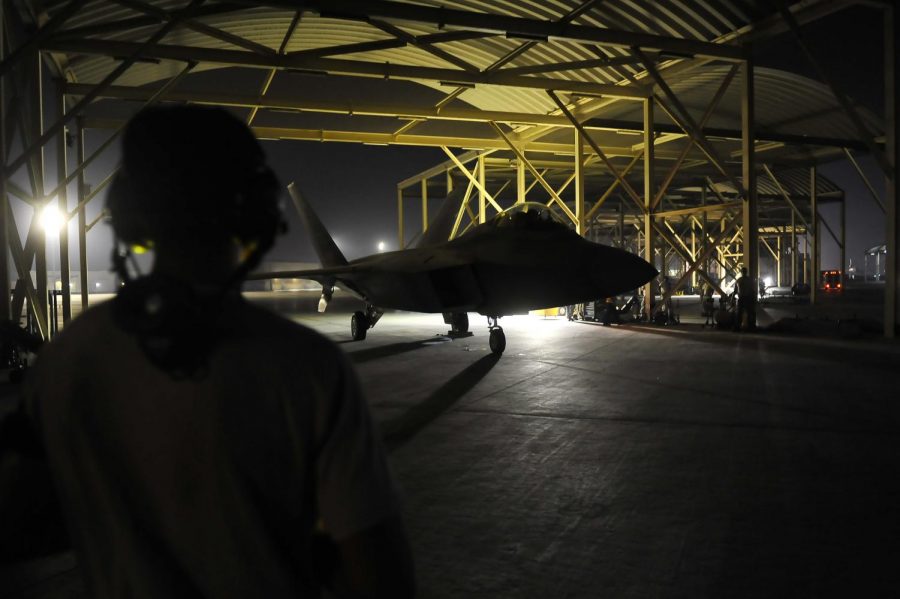American airstrikes in Syria provoke international tension
Credit: Wikimedia Commons
President Trump ordered airstrikes over Syria this past April. Controversy surrounding this decision gained heavy media coverage after the President was accused of being unsure as to whether or not the Syrian government used chemical weapons its citizens. The use of such weapons on Syrian citizens was the supposed reason for Trump’s recent airstrikes.
June 4, 2018
When U.S.-led missiles flew over the war-torn nation of Syria, those familiar with the conflict began to speculate: is this the beginning of another major US intervention?
The airstrikes, coordinated in a multilateral attack with Britain and France against the regime of Syrian dictator Bashar al-Assad on April 14th, came in response to the Syrian government’s alleged use of chemical weapons on hundreds of civilians. The three-state coalition launched 105 missiles from bomber jets, warships, and submarines at three Syrian chemical weapons facilities.
Previously, an international agreement named the Chemical Weapons Convention of 1997 was established, stating that no country should be permitted to use chemical weapons — an agreement which Syria recently violated. Nevertheless, controversy has begun to stir in recent weeks alleging that the Trump administration was not even completely certain of a chemical weapons attack.
Nikki Haley, U.S. Ambassador to the UN, told the U.N. Security Council “if the Assad regime uses chemical weapons again, the U.S. is locked and loaded.” However, TIME publishes that this forceful mentality “risks bringing more American involvement into Syria”.
The U.S.-led airstrikes come as the latest development in the multi-year Syria crisis that has presented itself as a global issue. According to BBC, more than 250,000 Syrians have been killed and over 11 million others have been forced from their home in over 7 years of armed conflict in Syria.
Russian President Vladimir Putin, a close ally to the Syrian regime, has taken on a negative opinion of the airstrikes, calling them “an act of aggression” that will have a “destructive influence on the entire system of international relations.” Previously, Putin had brokered an agreement in 2013 whereby Syria would give up their chemical weapons; the recent allegations against Syria have led to criticism that Putin does not have the power to reign in Bashar-al Assad.
Other nations have given mixed reviews about the airstrikes. China’s foreign ministry explains that they are “opposed to the use of force” in Syria, while Iran believes that “the US president, the French president and the UK prime minister have committed a crime.” On the other hand, Israel, Germany, Canada and others have come out in support of the airstrikes, calling it a necessary measure against the use of chemical weapons. Because of the split reaction over the airstrikes around the world, tensions may begin to spiral into an international conflict.
History teacher Vladimir Klimenko, who teaches Contemporary Issues Seminar, believes the Syrian conflict is one of the most multifaceted in the world, making it a dangerous time to engage in aerial attacks. He explained, “the Syrian situation is particularly complex because it includes many actors. Apart from the Assad government, there’s a non-Islamist opposition, at least two [other] Islamist groups, plus Russia, Iran, Saudi Arabia, Jordan, and Turkey”.
It is unclear whether or not Trump will meddle further in the Syrian crisis, or if global affairs will continue to get icier by the day – only time will tell.

